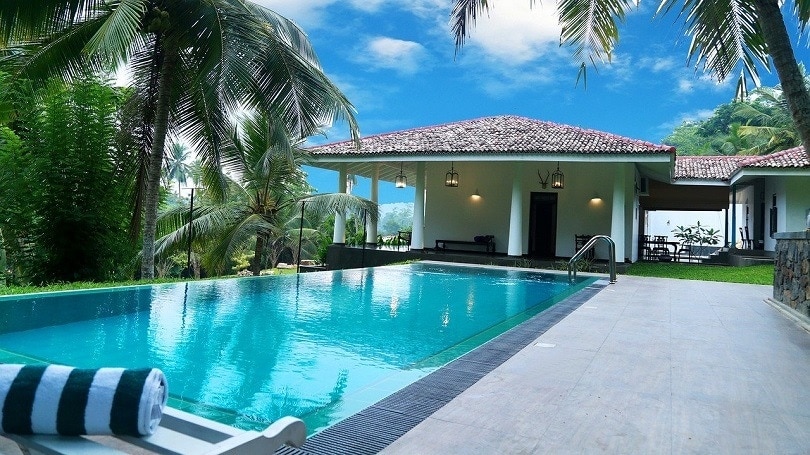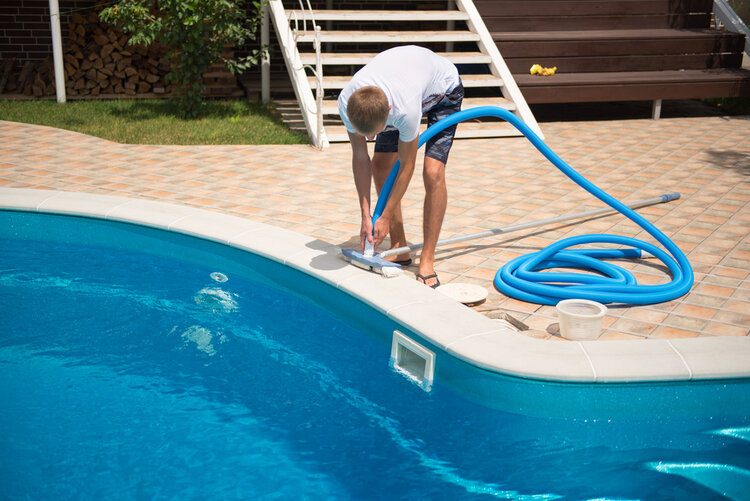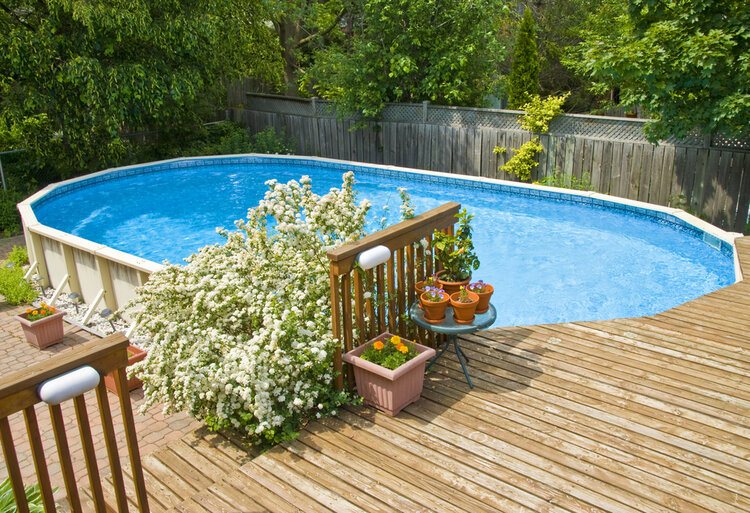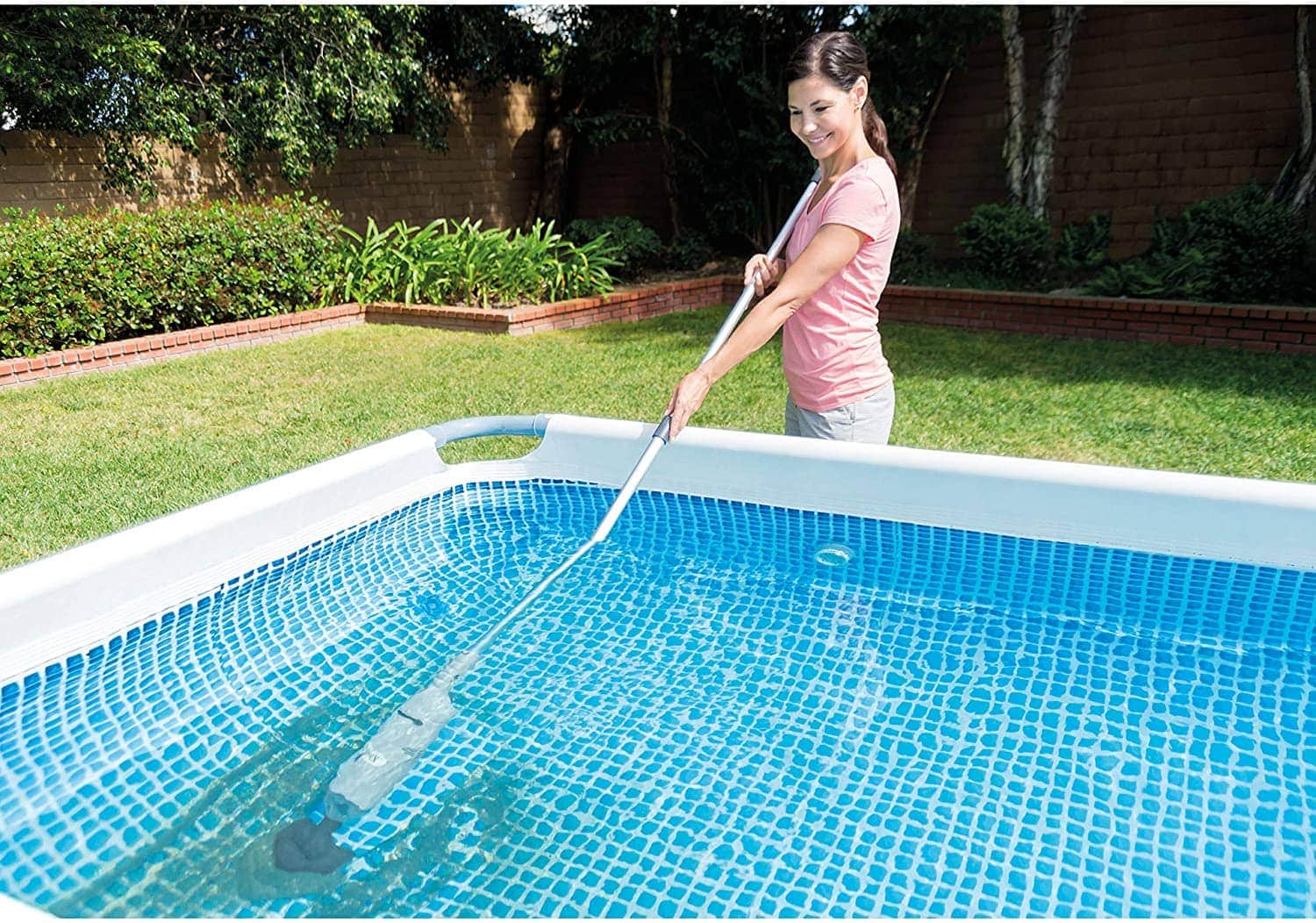Inground vs. Above Ground Pools: Which One to Choose?
-
Pete Ortiz
- Last updated:

If you are thinking about investing in a swimming pool, one of the most common questions is whether you should get an inground pool or an above ground pool. There are plenty of good things to say about either type of pool. There are also some reasons to stay away from each kind as well. We’re going to take an in-depth look at both of these types of pools and discuss the pros and cons of each to help you determine which pool is right for you.
Inground Pools

Inground pools are high class and have lots of room. They are custom made, so you can have virtually any shape you desire. You can have multiple depths and you can also use a diving board.
Cost of construction
However, inground pools are much more expensive than above ground pools and can cost many thousands of dollars. These pools require professional installation, and they will permanently change the landscape of your yard. Because constructing these pools is so invasive, you are often required to get permits from your city, and permission from your neighbors before you can install them. Once the pool is in place though it will increase your property value.
Size considerations
The large size of these pools is one of the inground pool’s most significant advantages. Because they are in the ground, they are better insulated from surrounding air and are generally more comfortable to relax in than an above ground pool.

Maintenance
Inground tools typically have a much better built-in filtration system that is much more effective than above ground pools at removing contaminants in the water. Still, these systems are more difficult to maintain and usually require a professional if they break down. The pool walls will also be costly to repair should they crack.
An inground pool will likely increase your homeowner’s taxes, and they are nearly impossible to remove should you decide you don’t like it. Daily maintenance is another concern since there’s more water than in above-ground pools. You will need to do much more cleaning and use more chemicals to keep it sanitized.
- Large size
- Multiple Depths
- Diving
- Increases property value
- Better insulation
- Better filter system
- Expensive to install
- Expensive to repair
- Hard to remove
- Increased property taxes
- More maintenance
Above Ground Pools

Cost and installation
Above ground pools have a much lower initial cost than an inground pool, and in most cases, you can install them yourself. You will need to dig out the grass and level the ground, but if you decide you don’t want the pool, you can remove it and return your yard to the way it was. You may need to get a permit and permission before installing your pool, but they are usually not difficult to obtain because you won’t be using any large tractors or digging deep holes. They won’t increase your property taxes, and all of the parts are accessible and easy to repair.
Durability
The downside to these pools is that they don’t last as long as inground pools and require frequent liner changes. There are fewer options as far as the shape, with most being round or rectangular. It is possible to use an expandable liner and have a concave floor, but the vast majority of above ground pools have a flat bottom.
Property values
Many people assume that because an inground pool increases the value of the home, an above ground pool will do the same. However, this is not the case, and above ground pools often reduce the value of the property. Realters will often suggest removing the pool before selling, or the cost of removal can come off the sale price.
Limitations
Above ground pools are not large enough to swim in, nor can you use a diving board, and since the water is above the ground, it tends to get cold fast when the temperature drops at night. They can still be a good amount of fun, though, and are capable of cooling off the entire family.
- Lower initial cost
- Easy to install
- Doesn’t increase property taxes
- Easy to repair
- Decreases property value
- Doesn’t last as long
- Frequent Liner changes
- Fewer shape options
- Not as large
- No diving
Final Verdict
When choosing between an above ground pool and an inground pool, your needs and your budget will determine which is the best purchase. If you have space and the money to invest, an inground pool can provide you with many years of trouble-free enjoyment while increasing the value of your home. You can enjoy a unique design that meets the needs of every family member. If you want to swim or dive, you will need an inground pool.
If you are on a tighter budget, the above ground pool has plenty to offer. There is a wide range of sizes and depths to satisfy almost every need. Even the top of the line models will only cost a fraction of what an inground pool would cost. You can also install an above ground pool yourself, and it will only take you a few days. If you grow tired of the pool or need to sell your home, you can disassemble the pool and reclaim the yard.
We hope you have enjoyed reading. Please share this guide to choosing between inground and above ground pools on Facebook and Twitter if you have found it helpful.
Featured Image Credit: R – Chiyacat, Shutterstock
Contents




